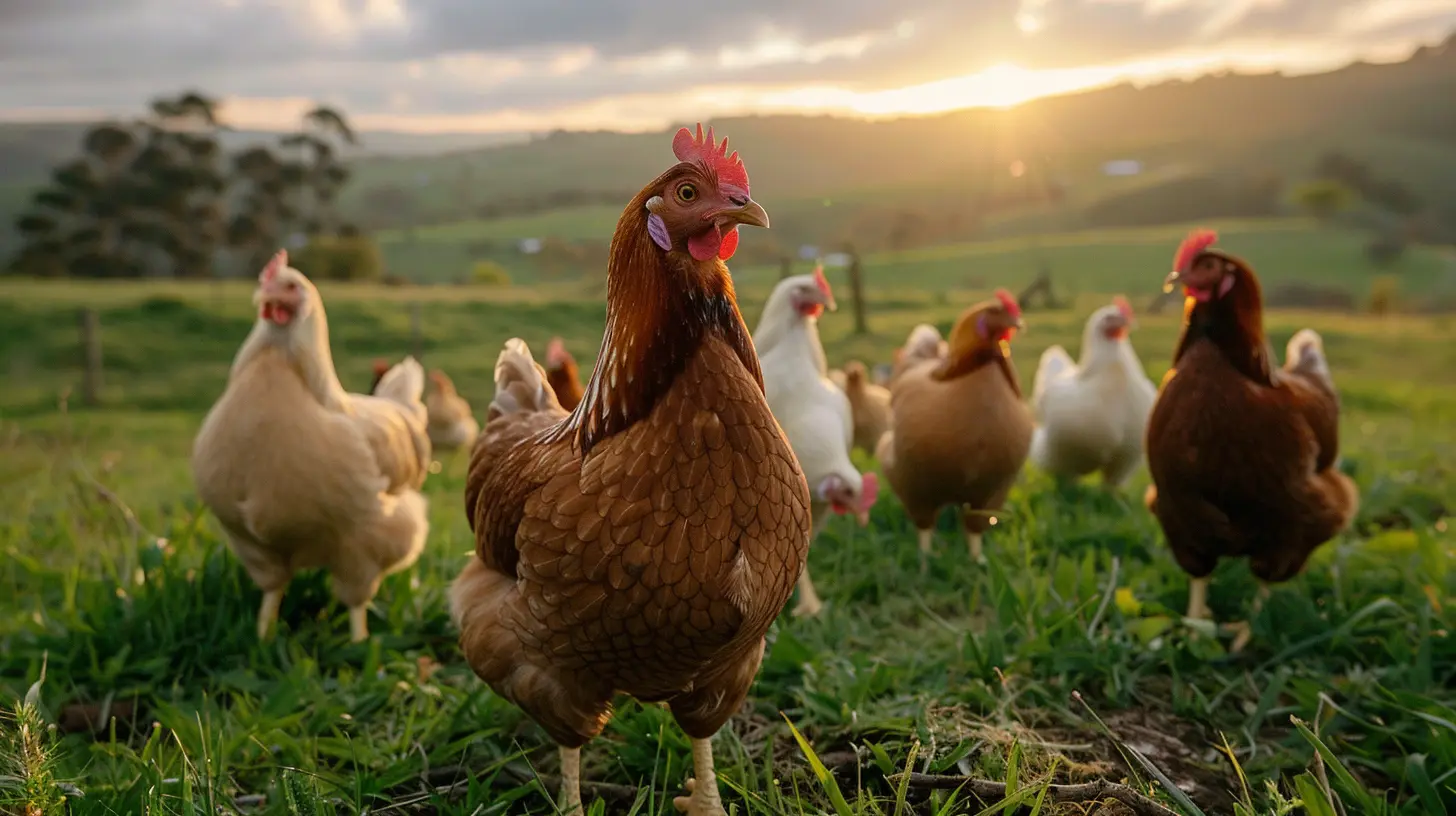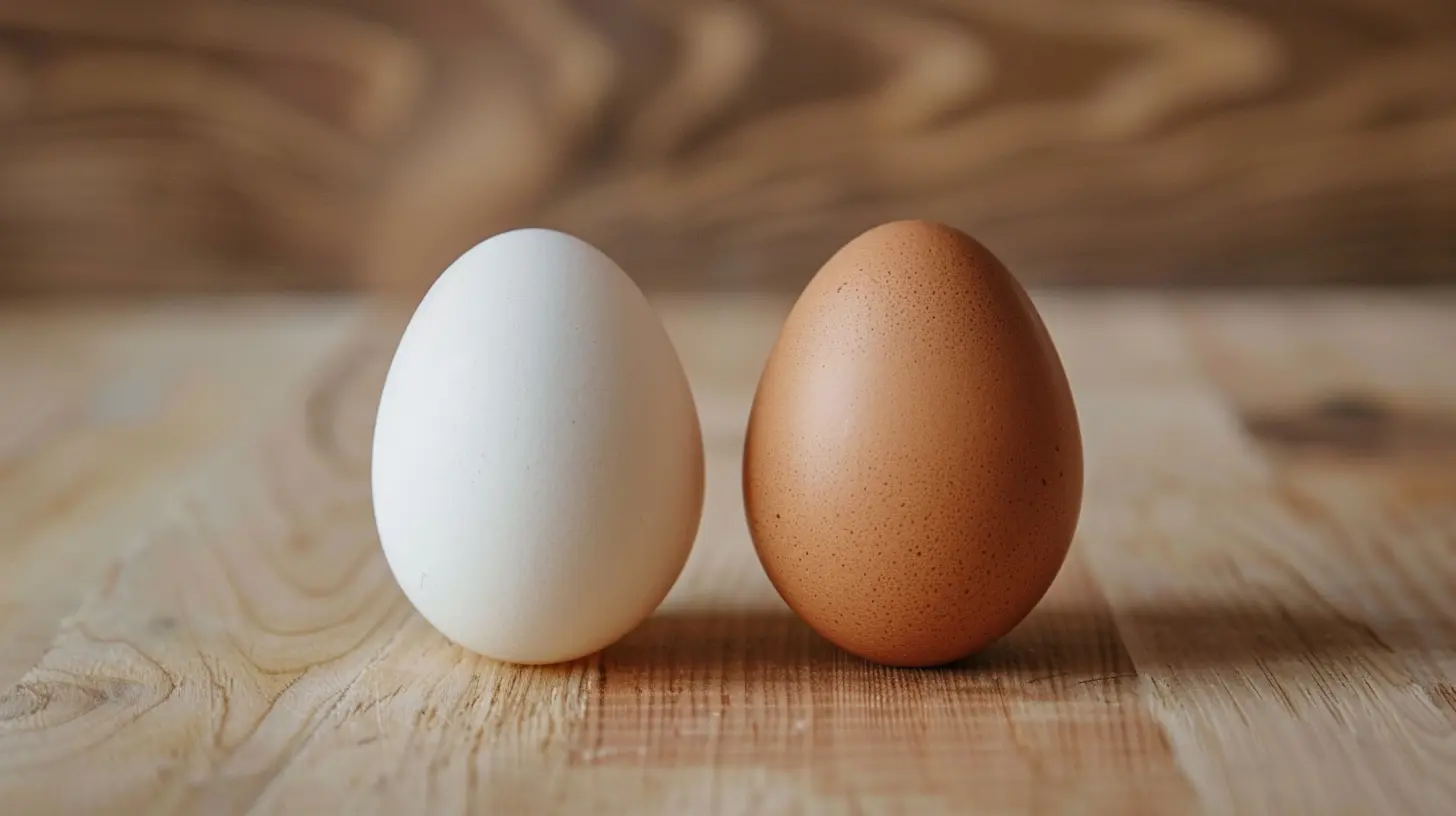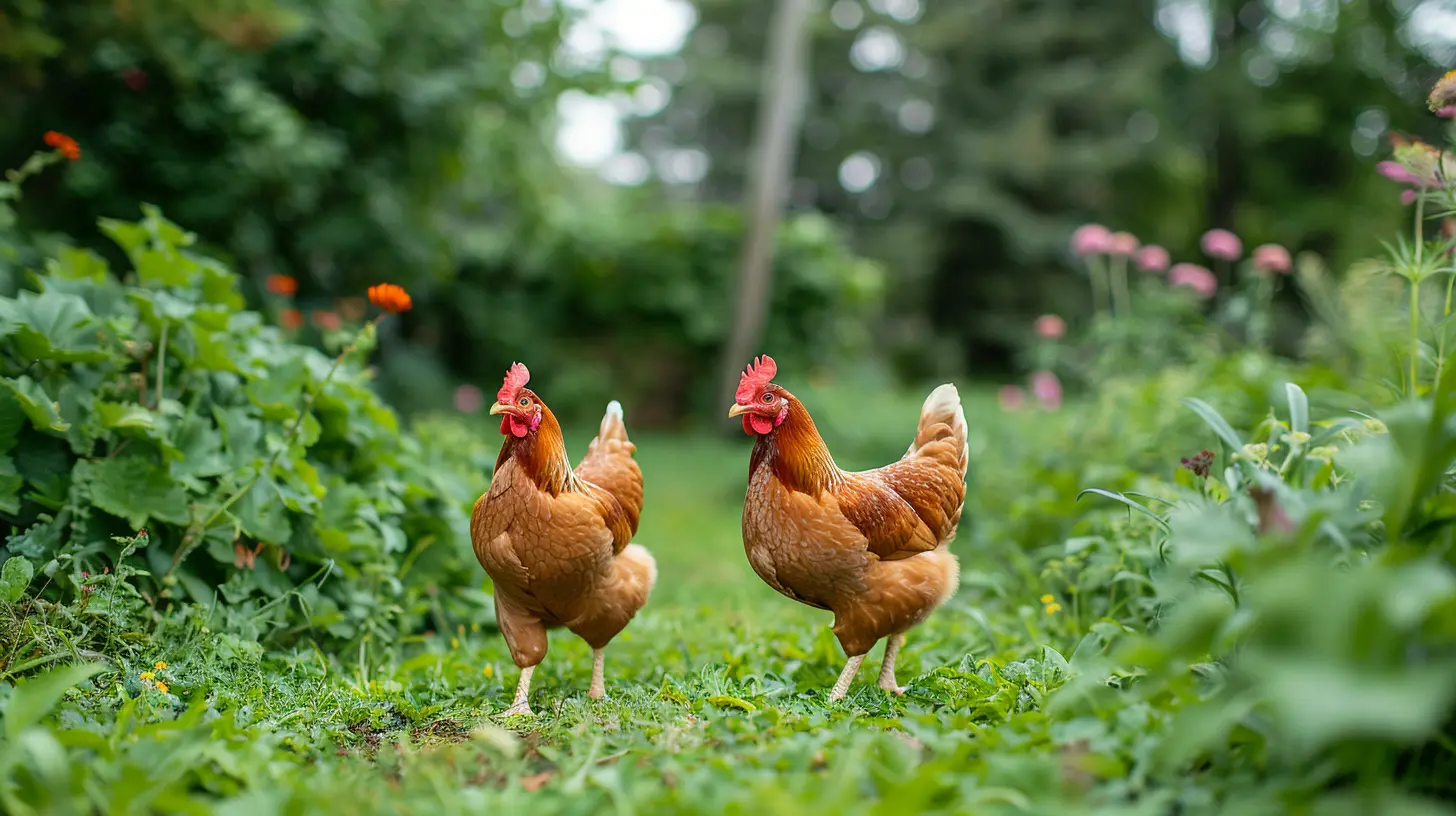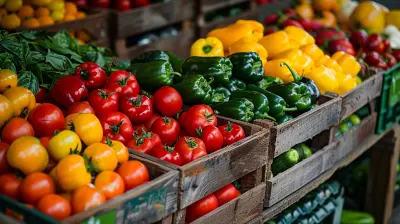The Differences Between Organic and Free-Range Eggs
27 August 2025
Walk down any grocery store egg aisle, and you’ll spot labels like “organic,” “free-range,” “pasture-raised,” and even “cage-free.” It’s enough to leave you scratching your head while holding a carton of eggs. Among the most popular buzzwords? Organic and free-range. But what do they really mean? Are they just marketing gimmicks, or do they reflect how the chickens are treated and what goes into your breakfast?
Let’s crack the case (pun intended) and break down the differences between organic and free-range eggs, so you know exactly what you're buying and feeding your body.
What Does “Organic” Actually Mean?
When you see the word “organic” slapped on an egg carton, it’s not just there for aesthetic appeal. In the U.S., the term is regulated by the USDA (United States Department of Agriculture), and egg producers must follow strict guidelines to be certified organic.Key Features of Organic Eggs:
- Organic Feed Only: Hens must be fed 100% organic feed, free from pesticides, herbicides, synthetic fertilizers, GMOs, and animal byproducts.- No Antibiotics or Hormones: Organic hens aren’t given antibiotics or growth hormones. If a hen gets sick and needs antibiotics, she’s removed from the organic flock.
- Access to the Outdoors: Hens must have “access” to the outdoors, although the term is a bit fuzzy—you’ll see why shortly.
- Certified Practices: The entire operation, from feed to handling, must be certified organic.
So, in short, when you buy organic eggs, you're paying for a specific process that prioritizes natural feed and cleaner living standards (at least on paper).
And What About Free-Range Eggs?
The term “free-range” sounds like hens are frolicking in grassy meadows all day. But let’s not romanticize it too quickly.Key Features of Free-Range Eggs:
- Outdoor Access: Hens must have some access to the outdoors, but how much and what kind of access can vary a lot.- No Cage Confinement: Like organic hens, free-range hens aren’t kept in tiny battery cages, but that doesn’t always mean roomy fields.
- No Requirement for Organic Feed: Free-range hens can be given non-organic feed, which might include GMOs or synthetic additives.
- Antibiotics Usage May Vary: There are no strict regulations banning the use of antibiotics in free-range flocks unless the farm is also certified organic.
So, while free-range eggs may come from hens that aren’t stuck in cages, the quality of life and food the hens receive can differ wildly depending on the producer.
Organic vs Free-Range: Head-to-Head Comparison
Let’s pit organic and free-range eggs side-by-side so you can get a clear picture of what you’re paying for.| Feature | Organic Eggs | Free-Range Eggs |
|--------|--------------|-----------------|
| Feed | 100% organic, non-GMO | Can include GMOs and additives |
| Outdoor Access | Required, but not always generous | Required, but can be minimal |
| Antibiotics | Not allowed | May be allowed |
| Cage-Free | Yes | Yes |
| Certification | Strict USDA guidelines | Looser USDA standards |
| Environmental Impact | Lower chemical use | Varies |
| Cost | Generally higher | Mid-range pricing |
Let’s Talk Hen Welfare — What’s Really Happening?
You might assume that free-range and organic hens are living the good life, pecking under sunny skies. In reality, not all "outdoor access" is created equal.Here's the cold, hard truth: Sometimes, "outdoor access" means a small door leading to a concrete patch with little room to move. And if the hens never find that door, they may never step outside at all.
In contrast, some small-scale organic farms truly offer open pastures and sunshine. But unless you're buying from a farm you trust or seeking out pasture-raised options, it’s hard to know what you're getting.
So, while organic regulations are a bit stricter, neither label guarantees that hens are living their best lives unless it's paired with terms like “pasture-raised” or a reliable certification like Animal Welfare Approved.
Are There Nutritional Differences?
Alright, let’s get to the nitty-gritty—do these labels actually mean healthier eggs for you?Studies have shown that eggs from hens that roam and eat a more natural diet (think insects, greens, and grains) tend to have:
- Higher omega-3 fatty acids
- More vitamin E
- Better vitamin D levels
- Less cholesterol (sometimes)
Organic eggs, because they're often from hens eating better and living less stressful lives, may offer these perks. But again, "free-range" doesn’t always mean the diet is better—it depends on the farm.
Bottom line? While both types may be slightly better than conventional eggs, the biggest nutritional jump comes from pasture-raised eggs.
The Environmental Picture
Shifting gears a bit—let’s talk about the planet.Organic standards promote reduced pesticide use, crop rotation, and more sustainable farming practices. That’s a big win for soil health, biodiversity, and water quality.
Free-range farms aren’t required to follow these practices. So, while the hens might live outside cages, the environmental benefits aren't guaranteed.
If you’re big on environmental impact, organic is usually the better bet.
Price Tag: Are Organic Eggs Worth the Extra Dollars?
A dozen organic eggs can cost $4, $5, or even more. Free-range eggs tend to be cheaper, but still pricier than conventional eggs.So, is it worth the splurge?
That depends on your priorities. If you're all about:
- Supporting cleaner farming practices
- Reducing pesticide and GMO intake
- Improving animal welfare (to a degree)
Then yes, organic might be worth the money.
If you're mostly concerned about avoiding cage-raised eggs but want to save a few bucks, free-range can be a solid middle ground.
But if you're looking for the best of both worlds—nutrition, hen health, and ethics—look for pasture-raised eggs from local farms. They might not be USDA organic, but they often go above and beyond these labels.
What's On the Label (And What’s Not)
Understanding egg carton labels can feel like decoding a secret language. Here are a few quick tips:- Pasture-Raised: Generally means more space and better outdoor access (often 100+ square feet per hen). Not the same as “free-range."
- Cage-Free: Just means hens aren’t kept in cages. Doesn’t guarantee outdoor access.
- Certified Humane or Animal Welfare Approved: These third-party labels often mean stricter animal welfare standards.
- Organic + Free-Range: Yes, you can have both. These eggs meet organic feed standards and also offer outdoor access.
Pro Tip: If you’re unsure, check out the farm's website or look them up on apps like “Buycott” or “Certified Humane.”
So… Which Kind of Egg Should You Buy?
Let’s keep it real—there’s no one-size-fits-all answer here. Your choice might depend on budget, ethics, nutrition, or all of the above.Here’s a simple breakdown:
- Got a tight budget? Choose cage-free or free-range.
- Want better nutrition and sustainability? Go for organic.
- Want the best possible option for hen welfare and nutrition? Look for pasture-raised, preferably organic and third-party certified.
Ultimately, every step away from conventional battery-cage eggs is a step forward—for your health, for the hens, and for the planet.
Final Thoughts
Egg labels shouldn’t feel like a trip to the DMV—confusing, slow, and full of fine print. But unfortunately, they often do. The key takeaway? “Organic” and “free-range” are not the same thing. Organic focuses more on the overall farming system, feed, and chemicals used. Free-range revolves around a hen’s freedom of movement.If you care about what goes into your body and how animals are treated, it’s worth spending that extra minute scanning the label. And hey, you might even find a local farmer’s market or co-op where the eggs are fresher, tastier, and raised with love.
Crack on, egg lovers.
all images in this post were generated using AI tools
Category:
Organic FoodsAuthor:

Laurie Barlow
Discussion
rate this article
1 comments
Ardent McGrady
Eggsciting choices: Nature’s best in every shell! 🥚✨
September 20, 2025 at 3:10 AM

Laurie Barlow
Thank you! Both organic and free-range eggs offer unique benefits, making them great choices for health-conscious consumers. 🥚✨


